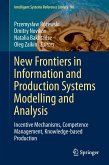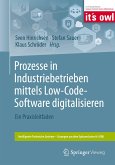A formal method is not the main engine of a development process, its contribution is to improve system dependability by motivating formalisation where useful. This book summarizes the results of the DEPLOY research project on engineering methods for dependable systems through the industrial deployment of formal methods in software development. The applications considered were in automotive, aerospace, railway, and enterprise information systems, and microprocessor design.
The project introduced a formal method, Event-B, into several industrial organisations and built on the lessons learned to provide an ecosystem of better tools, documentation and support to help others to select and introduce rigorous systems engineering methods. The contributing authors report on these projects and the lessons learned. For the academic and research partners and the tool vendors, the project identified improvements required in the methods and supporting tools, while the industrial partners learned about the value of formal methods in general. A particular feature of the book is the frank assessment of the managerial and organisational challenges, the weaknesses in some current methods and supporting tools, and the ways in which they can be successfully overcome.
The book will be of value to academic researchers, systems and software engineers developing critical systems, industrial managers, policymakers, and regulators.
The project introduced a formal method, Event-B, into several industrial organisations and built on the lessons learned to provide an ecosystem of better tools, documentation and support to help others to select and introduce rigorous systems engineering methods. The contributing authors report on these projects and the lessons learned. For the academic and research partners and the tool vendors, the project identified improvements required in the methods and supporting tools, while the industrial partners learned about the value of formal methods in general. A particular feature of the book is the frank assessment of the managerial and organisational challenges, the weaknesses in some current methods and supporting tools, and the ways in which they can be successfully overcome.
The book will be of value to academic researchers, systems and software engineers developing critical systems, industrial managers, policymakers, and regulators.
"This book reports on a remarkable four-year experiment in the application of scientific method to the development and delivery of software products. Participants in the experiment included seven well-reputed universities, and four industries, spanning a range of sizes, and drawn from different industrial sectors. Over 157 person-years were expended in total. This book conveys the fruits of the experience gained in the project. It gives a clear record of the successes of the project and of the challenges that remain. It should be studied by researchers who strive to advance the state of the art of programming in industry; also by innovative industries, wishing to judge the adequacy of the current state of the art to meet their future software development needs. Above all, it should be read by all who are interested in a successful model of industrial and academic collaboration, and who wish such experiments to be repeated." [Tony Hoare, Microsoft Research]
"[T]his book describes a project that has made a major contribution towards bridging the gap between formalists and practitioners in software development for dependable systems. The detailed substance of the contribution lies in the specifics of what has been done; but the full value lies even more in the cooperative way in which the project has been carried out and the open-minded acknowledgment of challenges. This book will amply repay a careful and thoughtful reading by researchers and practitioners alike." [Michael Jackson, London]
"[T]his book describes a project that has made a major contribution towards bridging the gap between formalists and practitioners in software development for dependable systems. The detailed substance of the contribution lies in the specifics of what has been done; but the full value lies even more in the cooperative way in which the project has been carried out and the open-minded acknowledgment of challenges. This book will amply repay a careful and thoughtful reading by researchers and practitioners alike." [Michael Jackson, London]









